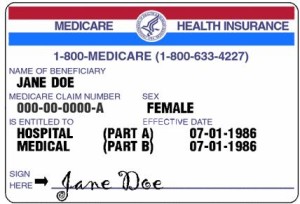Observation status is when an individual is in the hospital, often overnight, but has not admitted. Center for Medicare & Medicaid Services (CMS) defines “observation status” as “…specific, clinically appropriate services, including ongoing short term treatment, assessment, and reassessment before a decision can be made about whether a patient requires further treatment as a hospital inpatient or if the patient can be discharged…”
Often patients are unaware they have not been admitted. They may spend one or more nights in the hospital. They may receive extensive testing. However, the hospital never admits the patient. If a patient that remains on observation status and is not admitted, there are significant consequences under Medicare.
 A patient that is admitted to a hospital is covered by Medicare Part A. A patient on observation status is covered by Medicare Part B.
A patient that is admitted to a hospital is covered by Medicare Part A. A patient on observation status is covered by Medicare Part B.
The hospital is paid for an observation status patient’s services as outpatient services under Medicare Part B. Part B co-payments and deductibles apply to these services. If the patient has Medicare supplemental insurance, the financial burden may be minimal. However, if patient has opted out of Part B or has no supplemental insurance, the financial burden may be significant.
Additionally, a Medicare observation status patient may be ineligible for Part A, including, skilled nursing rehabilitation coverage following hospitalization. If a patient is admitted and spends three nights in a hospital, she may be eligible for up to 100 days of skilled nursing coverage in a nursing home. A patient on observation status is ineligible.
When a patient is staying in a hospital, she must ask whether she has been admitted or merely under observation. If the patient is under observation, she should ask to have her status changed. She should be admitted. If the hospital will not admit her, the patient can ask her physician to intervene. She also must understand the consequences to her on-going medical care and finances. An observation status patient can challenge a denial of coverage following discharge, including skilled nursing care coverage.
The use of observation status by hospitals has been significant a problem for Medicare recipients. To assist Medicare recipients, the Center for Medicare Advocacy has developed a self help packet for individuals challenging skilled nursing coverage after a hospital stay when a patient was under observation, but not admitted.

